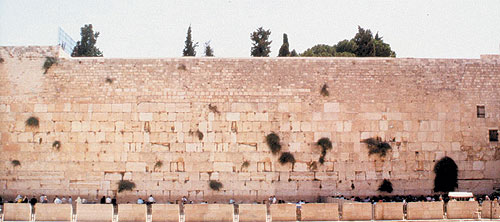
AT the end of the First World War, The Palestine problem became an international issue with the disintegration of the Turkish Ottoman Empire. Palestine was among the several former Ottoman Arab territories which were placed under the administration of Great Britain under the so-called Mandates System adopted by the League of Nations pursuant to the League's Covenant (Article 22).
During the years of the Palestine Mandate, from 1922 to 1947, large-scale Jewish immigration from abroad, mainly from Eastern Europe took place, the numbers swelling in the 1930s with the notorious Nazi persecution of Jewish populations. Palestinian demands for independence and resistance to Jewish immigration led to a rebellion in 1937, followed by continuing violence during and immediately after World War II. Great Britain tried to implement various formulas to bring independence to a land ravaged by violence. In 1947, Great Britain in frustration turned the problem over to the United Nations.
1947-1977
After looking at various alternatives, the UN proposed the partitioning of Palestinesintostwo independent States, one Palestinian Arab and the other Jewish, with Jerusalem internationalized (Resolution 181 (II) of 1947). One of the two States envisaged in the partition plan proclaimed its independence as Israel and in the 1948 war expanded to occupy 77 per cent of the territory of Palestine. Israel also occupied the larger part of Jerusalem. Over half the indigenous Palestinian population fled or were expelled. Jordan and Egypt occupied the other parts of the territory assigned by the partition resolution to the Palestinian Arab State which did not comesintosbeing.
In the 1967 war, Israel occupied the remaining territory of Palestine, until then under Jordanian and Egyptian control (the West Bank and Gaza Strip). This included the remaining part of Jerusalem, which was subsequently annexed by Israel. The war brought about a second flight of Palestinians, estimated at half a million. Security Council resolution 242 (1967) of 22 November 1967 called on Israel to withdraw from territories it had occupied in the 1967 conflict.
In 1974, the General Assembly reaffirmed the inalienable rights of the Palestinian people to self-determination, national independence and sovereignty, and to return. The following year, the General Assembly established the Committee on the Exercise of the Inalienable Rights of the Palestinian People. The General Assembly conferred on the PLO the status of observer in the Assembly and in other international conferences held under United Nations auspices.
 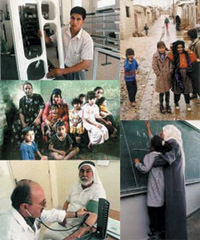

1977-1990
Events on the ground, however, remained on a negative course. In June 1982, Israel invaded Lebanon with the declared intention to eliminate the PLO. A cease-fire was arranged. PLO troops withdrew from Beirut and were transferred to neighboring countries after guarantees of safety were provided for thousands of Palestinian refugees left behind. Subsequently, a large-scale massacre of refugees took place in the camps of Sabra and Shatila.
In September 1983, the International Conference on the Question of Palestine adopted inter alia the Geneva Declaration containing the following principles: the need to oppose and reject the establishment of settlements in the occupied territory and actions taken by Israel to change the status of Jerusalem, the right of all States in the region to existence within secure and internationally recognized boundaries, with justice and security for all the people, and the attainment of the legitimate, inalienable rights of the Palestinian people.
In December 1987, a mass uprising against the Israeli occupation broke out in the occupied Palestinian territory (the intifadah). Methods used by the Israeli forces during the uprising resulted in mass injuries and heavy loss of life among the civilian Palestinian population.
The Peace Process
A Peace Conference on the Middle East was convened in Madrid on 30 October 1991, with the aim of achieving a just, lasting and comprehensive peace settlement through direct negotiations along 2 tracks: between Israel and the Arab States, and between Israel and the Palestinians, based on Security Council resolutions 242 (1967) and 338 (1973) (the "land for peace" formula). A series of subsequent negotiations culminated in the mutual recognition between the Government of the State of Israel and the Palestine Liberation Organization, the representative of the Palestinian People, and the signing by the two parties of the Declaration of Principles on Interim Self-Government Arrangements in Washington, D.C., on 13 September 1993, as well as the subsequent implementation agreements, which led to several other positive developments, such as the partial withdrawal of Israeli forces, the elections to the Palestinian Council and the presidency of the Palestinian Authority, the partial release of prisoners and the establishment of a functioning administration in the areas under Palestinian self-rule. The involvement of the United Nations has been essential to the peace process, both as the guardian of international legitimacy and in the mobilization and provision of international assistance.
 
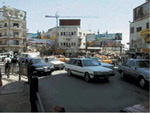
The UN General Assembly welcomed the Declaration of Principles as an important step forward. The Assembly also reaffirmed that "the United Nations has a permanent responsibility with respect to the question of Palestine until the question is resolved in all its aspects in a satisfactory manner in accordance with international legitimacy."
During the past years, there has been increasing concern at the stalemate in the peace negotiations. The General Assembly, particularly the Assembly’s Tenth Emergency Special Session, was called upon to deal with the deteriorating situation in the occupied Palestinian territory. There has been increasing alarm at acts of violence against civilians, the position and actions of the Government of Israel with regard to Jerusalem, the expansion of settlements, land confiscation and punitive collective measures which were seriously undermining the peace efforts.
* Based on United Nations documents and sources
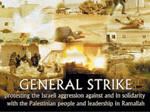 
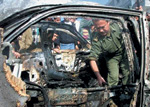
| ![]() 本网站由北京信息港提供网络支持
本网站由北京信息港提供网络支持









